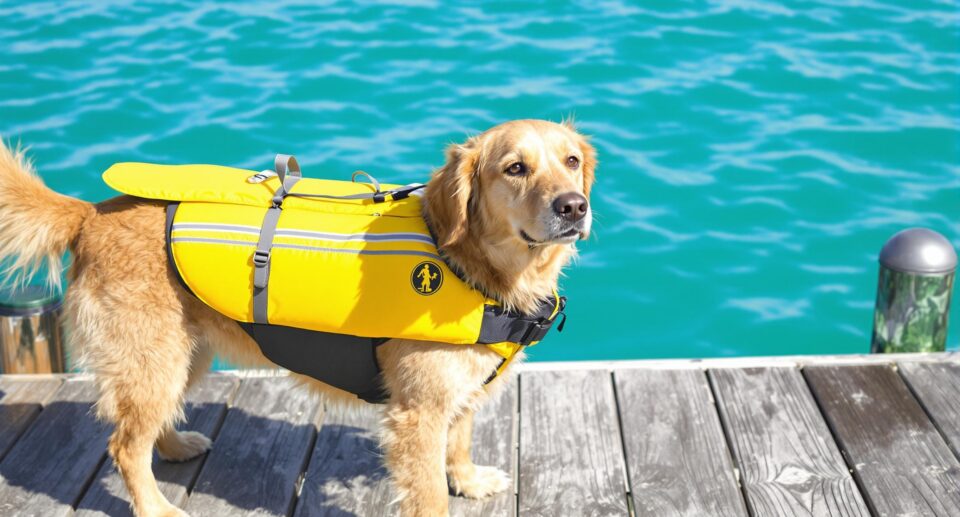Water Safety Tips For Dogs

Scorching summer days are best spent cooling off by the water with your best friend. Whether your pet likes to paddle in the deep end or prefers to just dip their toes by the shore, use these pet water safety tips to help them safely beat the heat.
What’s In The Water?
Lakes, brooks, and beaches can be contaminated with parasites and toxins that can make your pet sick.
Giardia is a single-celled parasite that’s found in bodies of water. It can even survive chlorine in pools for about 45 minutes. Animals and people contract giardia when they drink water while swimming, and it typically causes diarrhea. In healthy pets, giardiasis typically clears up in about two weeks. Though the infection is not life-threatening to most pets, it may require treatment. See your vet if your pet develops diarrhea a few days after swimming.
Blue-green algae, also known as cyanobacteria blooms, are microorganisms found in lakes and ponds. They sometimes give off cyanotoxins that are highly fatal to people and animals that swim in the water. There’s no way to tell if algae in a particular pond is toxic, so it’s important to stay away from murky water, especially if it has blue-green, reddish, or brown scum at the surface. It can appear foamy or may look like paint floating in the water.
Only take your dog swimming at popular spots that are known to be safe, and rinse them off with fresh water after their swim.
Avoiding Swimmer’s Ear In Dogs
Some dogs get ear infections after spending a day in the water. Excess moisture trapped in the ear canal can become a breeding ground for bacteria. Make sure to dry your dog’s ears with a towel when they come out of the water. Look for signs of an ear infection in the days following, which include itching, unusual odors, and discharge.
If your dog does develop an ear infection, take them to the vet right away, as ear infections cannot be treated at home. For dogs with recurring ear infections, you can use an ear wash to dry out the ear canal after a swim.
Drowning In Pets – Know The Risks
While your pet may immediately start to paddle with their paws upon making contact with water, they are not automatically good enough swimmers to stay safe from drowning. Some pets are better swimmers than others. Also, keep in mind that your pet may be able to swim, but they could drown if they have trouble exiting a body of water.
If you plan to spending time around water with your dog this summer, invest in a good life jacket for them. The life jacket will keep them afloat if they encounter a strong wave or rough current while swimming, or if they fall overboard when riding on your canoe or kayak.
Have a pool at home? Even if your dog loves it and can get in and out of the water without issue, they should never be allowed to swim while unattended. It’s a good idea to have multiple safety measures against drowning. For example, you may use a gate to help keep your dog out, but you may also have a ramp to ensure your dog can get out of the pool if someone accidentally leaves the gate open.
Dehydration & Water Intoxication
When your pet is having fun under the sun, they may not take breaks to drink water. Conversely, while playing in water, they can actually drink too much.
Both dehydration and water intoxication cause an imbalance of electrolytes in their body. Make sure your pet has plenty of opportunities to drink fresh, clean water. You can even give your pet diluted broth or coconut water to help replenish electrolytes.
Though these summer hazards can be scary, now that you know what to look out for, you can enjoy a safe day out with your pet. Stay safe, have fun, and take plenty of photos!





